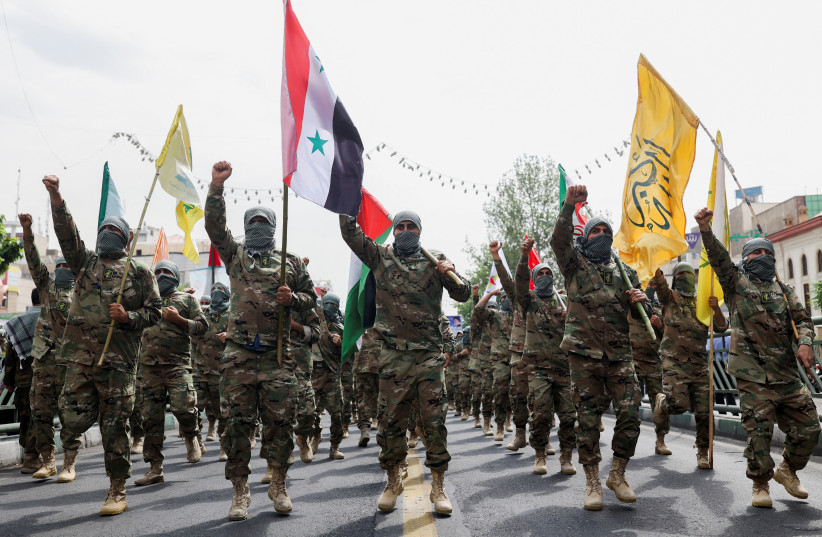In July 2006 Naftali Bennett received a “Tzav 8,” an emergency call-up order from the IDF, two weeks after Hezbollah guerillas had crossed into Israel, attacked an IDF patrol, and abducted two reservists. Israel had embarked on one of the largest military operations in decades and was sending three ground divisions into Lebanon.
Bennett was in-between jobs. A year earlier, he oversaw the sale of the hi-tech company he had founded with a number of friends to the tune of $145 million, and had stayed on as an adviser. He was looking for his next move.
The war would change everything.
Trained in Sayeret Matkal, Bennett had been plucked from the elite commando unit after completing officer’s training and was taken to serve as one of the founding platoon commanders of Maglan, a new unit established a couple of years earlier desperately in need of new blood.
It was there that Bennett learned a skill that would serve him on the battlefield and later in politics: how to hunt.

The soldiers in Maglan were trained to not just hunt the enemy, but also their weapons, particularly rockets. It was this skill that the IDF wanted Bennett and his soldiers to put to use when they were called up during the Second Lebanon War and sent to an area in the Western Lebanese sector, near the village of Debel.
Their success would be minimal, and the price the IDF would pay in Debel would be high: on the afternoon of August 8, 2006, a Hezbollah squad fired a pair of anti-tank missiles at a home in the village where two IDF reservist companies had taken cover. Nine soldiers were killed, and 29 others were wounded.
Bennett was not there that day, but the mission, he would later explain, was impossible to complete. Any attempt to simply hunt after rockets was futile. It will, he learned in Lebanon, never end.
That was a lesson he carried with him in the years that followed, when he entered politics and started to spend time in the security cabinet, which he joined as a newly minted minister under Benjamin Netanyahu in 2013.
During that period, Bennett met a number of times with Netanyahu and tried to persuade him to adopt a different strategy for confronting Iran and its terrorist proxies across the region. For the most part he kept the strategy quiet, until he felt he could wait no longer.
In January 2018, Bennett – now the education minister – took to the podium at an INSS conference in Tel Aviv but said not a word about education. Instead, he opened with a story: a farmer got bit by a mosquito one day when he was out working his field. The farmer scratched the bite and went back to work, but then more mosquitoes came, and more bites. So the farmer bought a baseball bat, and every time a mosquito came he took a swing. Sometimes he won, and sometimes he got stung.
“But the mosquitoes didn’t stop coming,” Bennett told the audience. “The farmer built a special net that covered his bed, his room and then his entire home. But even the net didn’t work, and the mosquitoes found a way in. So the farmer turned to a technology company, and they developed a special system that identified a mosquito as it took flight and killed it with a special tiny interceptor.”
“The farmer built a special net that covered his bed, his room and then his entire home. But even the net didn’t work, and the mosquitoes found a way in. So the farmer turned to a technology company, and they developed a special system that identified a mosquito as it took flight and killed it with a special tiny interceptor.”
Naftali Bennett
But the mosquitoes kept coming. One day, as the farmer sat on his porch with his older and wiser father, he asked his father what to do about the mosquitoes. “Son, maybe dry the nearby swamp,” the father said.
The message, Bennett continued, was clear: Israel needed to stop going after the mosquitoes – Hezbollah and Hamas –and instead needed to shift its focus to draining the swamp – Iran.
It is the same thinking that led to his creation of another metaphor he has used often: Iran is the head of the octopus, and it is the head that Israel needs to attack and not the tentacles.
While the metaphors are nice, the implementation is not simple. Covert operations in Iran in recent weeks alleged to have been carried out by Israel definitely seem impressive, but the details that have been revealed are just the tip of the iceberg.

When we read a story about an IRGC officer killed in his car by two men on a motorbike, or an explosives-laden quadcopter that crashed into the secretive Parchin military facility causing damage and killing an engineer, the details are bare. Who were the alleged assassins? Israeli agents or local Iranians? If they were local Iranians, do they even know that they are working for Israel, if it is indeed Israel, or is it possible that they think they are working for an entirely different spy agency? The answers – if ever uncovered – will be all the more fascinating.
Regardless, there is no doubt that Israel has upped its activity. Just look at comments made in the last two weeks by Israeli leaders.
Bennett said last Sunday that the “era of immunity for the Iranian regime is over.” Foreign Minister Yair Lapid said on Wednesday: “If the Iranians are bringing war to our doorstep, then they’re going to find war at theirs. If they want to avoid it, then we will avoid it as well.” And then Bennett told the Knesset again this week that “Israel is taking action against the head of the octopus of terrorism, not only against its tentacles.”
This is no longer like the old days, when an Israeli politician would wink or pat a reporter on the back for asking a question they couldn’t answer.
This is practically outright confirmation.
What seems to be happening is that Israel – based on what has been reported – has upped its activity. For this to happen, the main operational arm would be the Mossad, which would not easily be able to carry out such a series of operations like this – one after the other – without a massive undertaking. It is likely that Bennett has asked Mossad chief David Barnea to increase efforts to create infrastructure in Iran that would enable a constant operational capability. If so, that is not something that can happen overnight. It would take time.
Here is the catch: while these operations are impressive, they alone will not stop Iran. One of the key differences between Iran and the two previous nuclear programs that Israel thwarted – Iraq in 1981 and Syria in 2007 – was that in both cases the countries were dependent on foreign intervention to build their installations. Once destroyed, both required someone else to come in and build it for them.
Iran is different. All of the technology is domestic, indigenous. It is Iranian. This means that eliminating a nuclear scientist here or there might stall and delay an aspect of the program, but it is not going to be enough to stop it.
The same could potentially be argued about a kinetic military strike against Iran’s nuclear facilities.
Bennett has previously fallen for some of this activity and rhetoric. When he was defense minister for six months between November 2019 and May 2020, he spoke about how Iran was leaving Syria, and that a plan he had put in place would see Iran leave the country within 12 months.
Well, here we are two years later, and based on the two attacks that took place this week near Damascus, it seems that Iran is still present in Syria and has yet to withdraw its forces.
That does not mean covert action is unimportant. It is. It shows adversaries that they are vulnerable, it undermines their activities, and it sends ripples across the globe, putting the heat on nations and forcing them to up their diplomatic efforts in an effort to stave off war.
But it is not the means to an end. That requires a more thought-out strategy. There are hints that Israel has one, and Bennett spoke in the Knesset this week – in the part of the meeting closed to the media – about the kind of nuclear deal that Israel would find acceptable.
But Israel does need to recognize that getting the world on its side and understanding the need for a tougher approach to Iran is always going to be an uphill battle. Can it succeed? We will soon find out.
